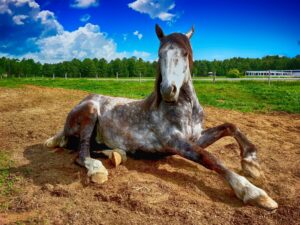
Inspecting Equine Farms & Stables
Equine Farm Inspection in New Jersey
A professional Equine Farm Inspection ensures the safety and functionality of the physical structures that house your livestock. During this detailed evaluation, we assess every accessible structure associated with stabling and housing to ensure they are safe for both horses and handlers.
1. Barn and Stable Structure Evaluation
First and foremost, we examine the primary structures for stability and general condition. Specifically, this inspection includes:
Roofing: Checking for leaks, structural integrity, decking condition, and proper ventilation paths.
Walls & Lofts: Assessing framing condition, moisture intrusion, and potential entry points for pests.
Flooring: Identifying slip hazards, rot, drainage issues, and overall suitability for livestock use.
Ventilation Systems: verifying airflow adequacy, operable windows, and fan performance to prevent respiratory issues.
Interior Safety: Testing stall doors, latches, aisle safety, fire egress routes, and lighting.
Attached Fencing: Reviewing the condition of perimeter and service fencing directly connected to the stabling area.
Upon completion, you receive a written report outlining our findings and suggested next steps.
2. Operational & Welfare Evaluation
Beyond the structural inspection, a full-scale farm evaluation—typically performed by a horse farm manager or experienced equine professional—focuses on the daily operations and care standards. For buyers new to equine properties, understanding these factors is critical:
Animal Health: Observing horses for musculoskeletal symmetry, weight condition, and signs of illness or injury.
Farm Management: Reviewing feeding procedures, waste disposal, manure management, and veterinary record-keeping.
Equipment & Hygiene: Checking the cleanliness of tack rooms, the condition of horse-care equipment, and the competency of the staff.
3. Grounds & Amenities (Buyer’s Checklist)
Finally, to ensure the property meets your specific needs, buyers should evaluate the surrounding grounds and amenities. Key areas to assess include:
Pastures & Paddocks: Analyzing grass health, soil erosion, invasive weeds, and water access.
Fencing: Checking the perimeter and interior fencing for loose components and suitability for your specific breed.
Riding Arena: evaluating footing quality, base condition, drainage, lighting, and size.
Trails & Access: Reviewing footing maintenance and slope safety.
Zoning & Services: Confirming local regulations regarding boarding or commercial activity, and locating nearby veterinary clinics and feed suppliers.